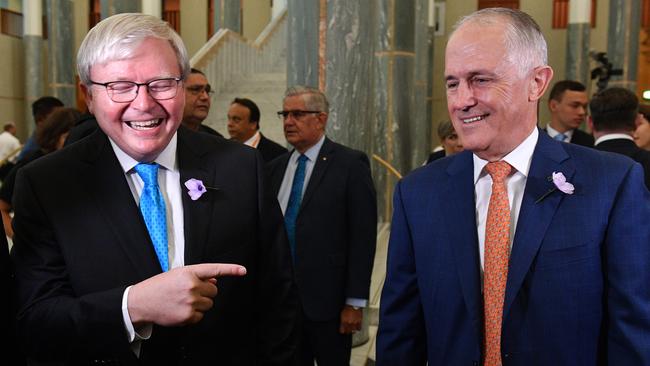
There is a gold standard set by an odd couple: former Australian prime minister Julia Gillard and US president George W. Bush. They departed the political stage with none of the public vitriol or vengeance of other leaders, and neither has indulged in insufferable interventions into national or international politics.
Ever since she left, Gillard has been a model of dignity and class, with no public sign of bitterness. It is the same with Bush. Unlike Bill Clinton and Barack Obama, who imagine that the world needs to hear from them, Bush has found a life away from politics. Gillard has set an especially high bar for former prime ministers, forging a meaningful life away from politics. There is such a thing, after all.
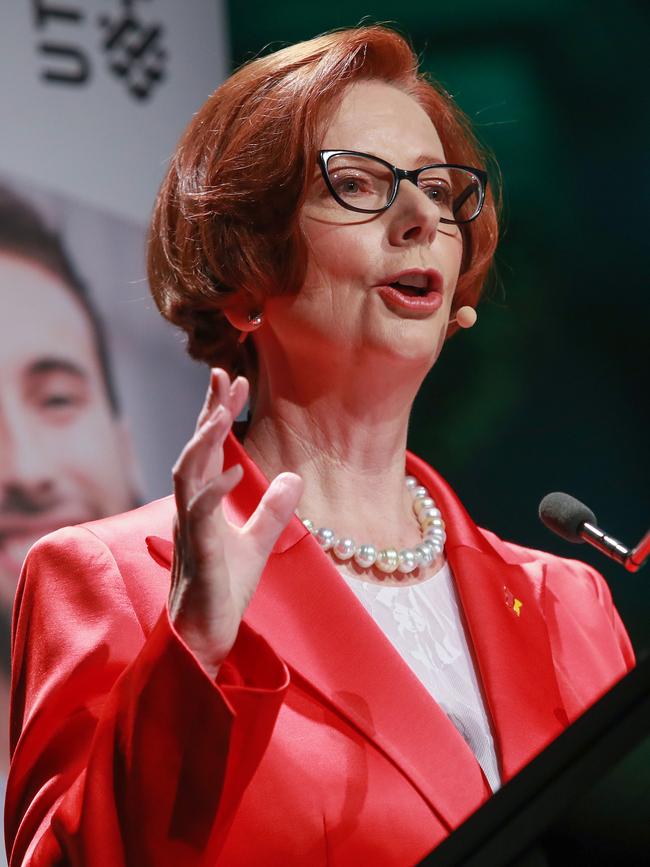
Some of those who fall short of Gillard’s standard have a common trait: if they behaved badly in politics, it is a fair bet they might behave badly after. It is deep in their psyche, after all, to care less about their party, about former colleagues, to prefer prolonged self-aggrandisement over quiet self-reflection. Kevin Rudd fits this bill. He was a wrecker when ousted as prime minister and again when he left parliament. But he has recently been outdone.
It is an understatement that former Liberal prime minister Malcolm Turnbull has not managed his post-political life with much dignity. Most recently he fronted BBC cameras to lecture the world, and especially Australia, about climate change.
Intemperately, he declared his political opponents in the Liberal Party and the press “terrorists”. He attacked Scott Morrison’s leadership during the bushfire crisis, feigning a quizzical “I can’t explain any of it”. Turnbull refused to refer to his successor as Prime Minister, nor could he manage the title President, prattling “Trump” this, and “Trump” that.
This, and more, is a pointer to the alignment of Turnbull’s post-political psyche with his behaviour in politics. In his eyes, no one was his equal; he was always the smartest person in any room. And now the former Liberal prime minister imagines the world should still hear from him about the state of the Liberal Party, not to mention the world.
While Turnbull was dumping on Morrison, another former prime minister, Tony Abbott, was lauding Morrison’s leadership at a speech to the Heritage Foundation in Washington, DC. But as a former leader Abbott is no choir boy either. While Abbott didn’t skulk around wrecking in the dark as morosely as Rudd, he nonetheless worked to undermine Turnbull by challenging government policy.
Post-politics, Abbott could lift his game too. Speaking at Joe Hockey’s farewell as Australian ambassador, Abbott recently described working in Washington as a piece of cake compared with Canberra. “At least two of the last four Australian prime ministers have had narcissistic personality disorders. I’ll leave you to guess who they are,” Abbott said. He’s not wrong, but former prime ministers — including Abbott — should try to follow a line from the record-breaking US musical Hamilton. Talk less, smile more.
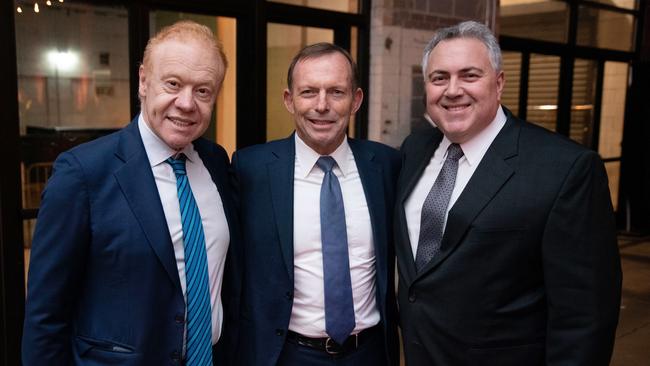
That said, Abbott will always be remembered and deeply respected for his true grit, a volunteer firefighter who fought to contain our bushfire crisis.
Of course, advising former prime ministers to share less of their wisdom is a shocking infringement of their right to free speech. But myriad reasons justify a dignified moratorium. For starters, a little post-political silence is good manners. It is also classy. Importantly, it marks an understanding that one becomes prime minister only with team support.
More than that, it is also good for their mental health to say less. A self-imposed period of quiet gives former politicians time to reflect more accurately on their political career, to pull the plug on festering anger and avoid damaging their legacy.
Former prime ministers will, and should, write their memoirs. But once that is done, they should refrain from gratuitous interventions. Gillard wrote her book and moved on. Turnbull is publishing his memoirs this year, and there is no sign he will butt out of politics.
To measure who sits where on the post-politics spectrum, here are some criteria.
Dumping on your political successor, no matter the party, marks you out as a frightfully sore loser. And deeply disloyal too if your successor belongs to your party.
British prime minister Margaret Thatcher was a shocker on this measure, tainting her reputation post-politics by sledging those who challenged her. Gough Whitlam could not resist deriding Bob Hawke, Malcolm Fraser incessantly attacked John Howard; Hawke denigrated his successor Paul Keating; Keating did it to Howard, referring to his successor as a “desiccated coconut” and “a pre-Copernican obscurantist”. These were overly worked phrases from an unhappy man.
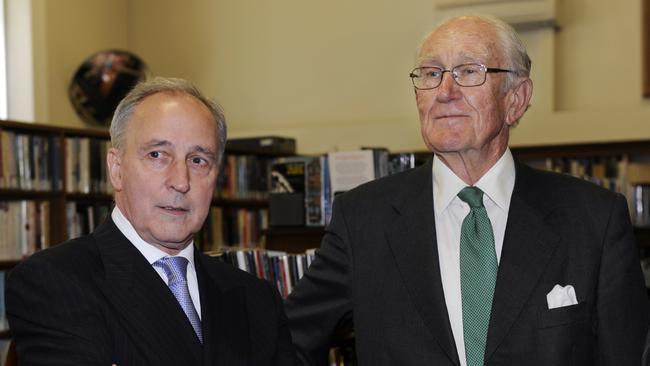
It is also bad form to attack your successor over policy. Better that former prime ministers realise that if their policy convictions have not been cemented into the national polity, that is their failure. While Howard is a meticulous public supporter of his Liberal successors, in a rare misstep in 2012 he used a speech at a business forum to suggest that Abbott adopt a workplace policy that contributed to Howard’s removal from office. Howard’s deep commitment to IR reform is admirable, but his intervention was unhelpful.
Political credibility is another yardstick. If you have won a string of elections, your views count for more than if you had failed to win an election, or perhaps limped over the line once. Missteps aside, Howard’s political success vests enormous credibility in what he says about politics. Similarly, the electorally lame British Labour Party could do worse than listen to three-time election winning Tony Blair. By contrast, Rudd won a single election pretending to be someone he wasn’t, an economic conservative. His insights are easily dismissed as froth.
As for former political leaders who never won an election, John Hewson takes the wooden spoon, followed closely by former Labor leader Mark Latham for their long and bitter crusade against parties that elected them leader.
Applying the above criteria, Turnbull fails on every count. Breaching rule No 1, he publicly attacks his successor for a failure of leadership. Yet, as prime minister, Turnbull took a thumping majority to a whimpering one-seat win in 2016. He walked away from his position on climate change yet blames others for that failure. Adding insult to his self-inflicted injury, Turnbull lectures us that climate change is responsible for bushfires. Yet, as Chris Kenny pointed out last week, Turnbull attacked the Greens for politicising a 2018 fire in Tathra. “You can’t attribute any particular event, whether it’s a flood or a fire or a drought or a storm to climate change,” Turnbull said then.
Rudd can rest easy. Without a sudden, dramatic U-turn, Turnbull may earn the dubious honour of being the worst former Australia prime minister in the post-Menzies era.


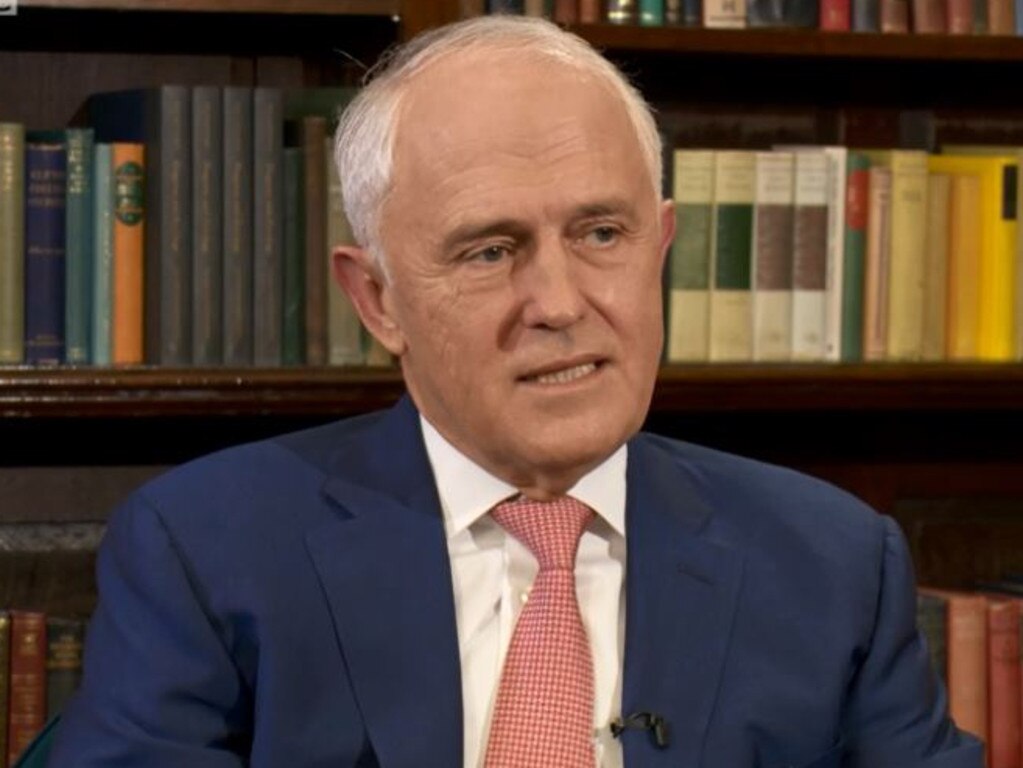
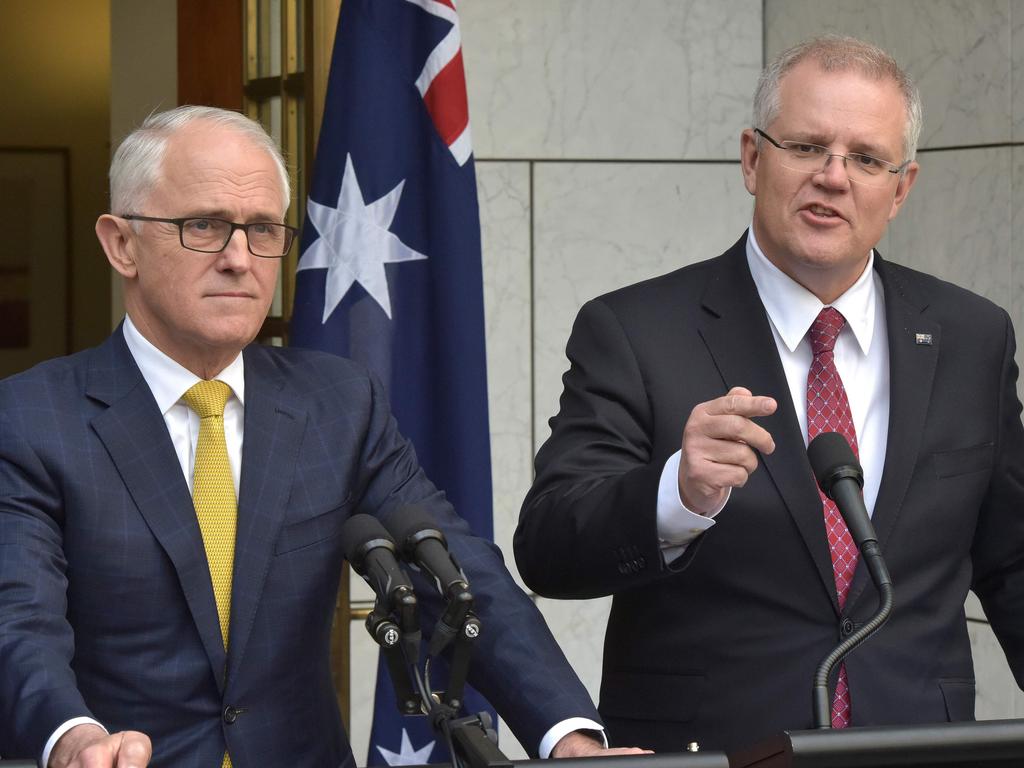




Politics is custom-made for narcissists. Maybe that explains why so many former leaders cannot manage to find happy, meaningful life after politics. That it is hard going cold turkey is a legitimate conundrum as much for them as for us. When they struggle to find self-worth elsewhere, they look rather wretched and needy. And it doesn’t help our politics either to have former politicians constantly telling us what we’re doing wrong.